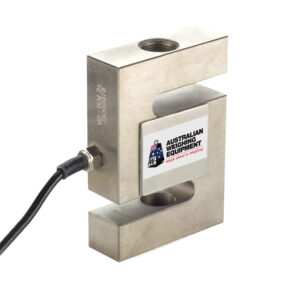Load cell transducers play a vital role in various industries, enabling precise measurement and monitoring of force and weight. Whether it’s weighing scales, industrial automation, or material testing, load cells provide accurate and reliable data. This article explores load cell transducers, delving into their principles, types, and applications.
 What is a Load Cell Transducers?
What is a Load Cell Transducers?
A load cell transducer is a specialized device used to convert a mechanical force or weight into an electrical signal. It consists of a sensor element that deforms under the applied force,generating an electrical output proportional to the force magnitude. This electrical signal can then be measured and utilized for different purposes.
Principles of Load Cell Transducer:
Load cell transducers operate based on different principles, including:
- Strain Gauge Load Cells: The most common type of load cell, it employs strain gauges that change resistance when subjected to force. The deformation of the strain gauge causes a change in electrical resistance, which is converted into an electrical signal.
- Hydraulic Load Cells: These transducers utilize fluid-filled chambers to measure force. The force causes a change in pressure within the chamber, which is then measured as an electrical signal.
- Pneumatic Load Cells: Similar to hydraulic load cells, pneumatic load cells use compressed air or gas to measure force. The force applied to the cell compresses the air or gas, resulting in a change in pressure that is converted into an electrical signal.
Types of Load Cell Transducer:
Load cell transducers come in various types to suit different applications. Some common types include:
- Single Point Load Cells: Designed for applications requiring accuracy and precision, these load cells are ideal for bench scales, small platform scales, and packaging equipment.
- S-Type Load Cells: Shaped like the letter “S,” these load cells are versatile and used in tension and compression applications. They find applications in weighing systems, hopper scales, and industrial automation.
- Shear Beam Load Cells: Suitable for medium to high capacity applications, shear beam load cells offer excellent accuracy and stability. They are commonly used in truck scales, tank weighing, and industrial machinery.
- Compression Load Cells: These load cells are designed to measure forces in compression, making them suitable for applications such as tank weighing, material testing, and industrial automation.
Applications of Load Cell Transducer:
Load cell transducers find widespread use across various industries, including:
- Industrial Weighing: Load cells are extensively used in weighing systems for accurate weight measurement in industrial processes, logistics, and manufacturing.
- Aerospace and Automotive: Load cells play a critical role in aerospace and automotive testing and research, helping measure forces during component testing and vehicle performance evaluation.
- Material Testing: Load cells are employed in material testing machines to measure the tensile, compressive, or flexural strength of materials, aiding in quality control and research applications.
- Food and Beverage: Load cell are used in the food and beverage industry for portion control, batch weighing, and ingredient measurement in production processes.



